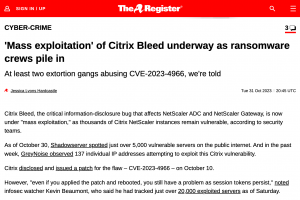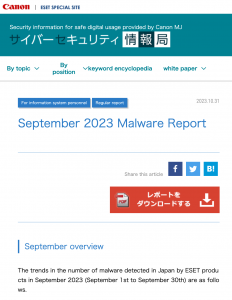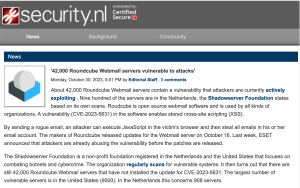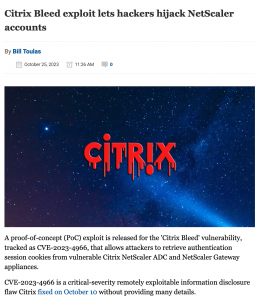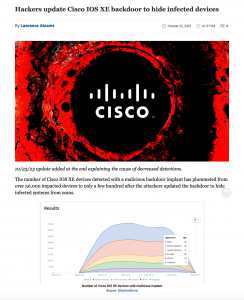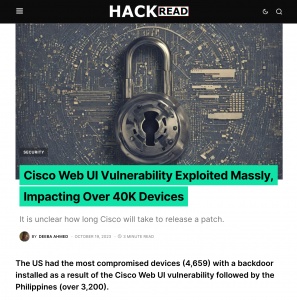'Mass exploitation' of Citrix Bleed underway as ransomware crews pile in
Citrix Bleed, the critical information-disclosure bug that affects NetScaler ADC and NetScaler Gateway, is now under “mass exploitation,” as thousands of Citrix NetScaler instances remain vulnerable, according to security teams.
As of October 30, Shadowserver spotted just over 5,000 vulnerable servers on the public internet. And in the past week, GreyNoise observed 137 individual IP addresses attempting to exploit this Citrix vulnerability. The vulnerability allows attackers to access a device’s memory, and in that RAM find session tokens that miscreants can then extract and use to impersonate an authenticated user. Thus even if the hole is patched, copied tokens will remain valid unless further steps are taken.


